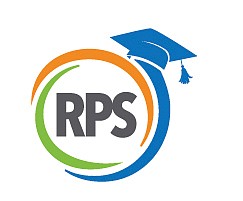Education advocate files U.S. Department of Education complaint against Richmond Public Schools
Jeremy M. Lazarus | 9/22/2022, 6 p.m.
Special education advocate Kandise Lucas is taking action after learning that Richmond has been ignoring a federal law that requires public schools to serve physically and mentally disabled children who are home-schooled, enrolled in private school or enrolled in the school system.
Ms. Lucas has filed a formal complaint with the U.S. Department of Education’s Office of Special Education to seek an investigation of Richmond’s failure to provide such services to children being educated outside of the public schools.
She submitted the complaint after the School Board and Superintendent Jason Kamras’ administration rebuffed her request for RPS to provide Chromebooks for the 20 students who attend the private nonprofit Outreach Involvement Center (OIC) in South Side – all of whom, she said, are diagnosed with challenges that would quality them for disability services.
Ms. Lucas said RPS also should be providing free breakfast and lunch for those students, along with other benefits provided to disabled students in city schools.
Ms. Lucas is hanging her complaint on a sea change in federal education law that Congress included in 2015 in passing then-President Obama’s Every Student Succeeds act.
Her reading of the law has been confirmed by the Virginia Department of Education.
The state agency noted in a published statement that the 2015 law made “private, nonprofit elementary and secondary school students, teachers and other educational personnel eligible to participate in federally-funded programs.”
VDOE noted in the statement posted at least three years ago that “each (public) school division is obligated to inform officials of private schools located within the division’s boundary” that such nonprofit schools are to benefit from the federal funding the division has received to provide physically and mentally disabled and with a “free and appropriate public education,” called FAPE in education jargon.
The department also requires each public school division to conduct a yearly count by Dec. 1 of every disabled child, including those in private settings. In its 2022 advisory on the count issued Sept. 16, the department highlighted that the count needs to include a survey of children parentally placed in home school and private school settings.
RPS has not responded to a Free Press request for comment on the issue.
But for the first time, Ms. Lucas said, RPS is poised to meet with nonprofit private schools in the city and possibly home-schooled children with disabilities, as required, to find out what services disabled children in their care might need.
She said she received a notice Tuesday that “RPS wants to meet to determine the needs of our children” and those disabled students enrolled in other eligible private schools, although a date has not been set.
Ms. Lucas said RPS’ failure to follow the federal education law is not unusual. She said Richmond just represents a test case. “This is the first school division in which this issue has been raised,” she said. “I plan to raise this issue with other school divisions that also have not been complying with this law.”
VDOE noted that 14 school divisions have authorized VDOE to hire a third party to handle services to such students.








